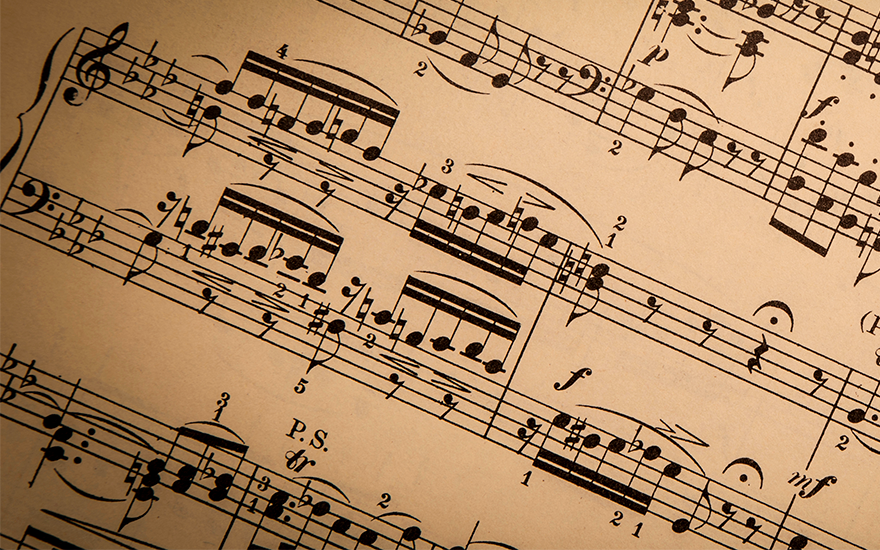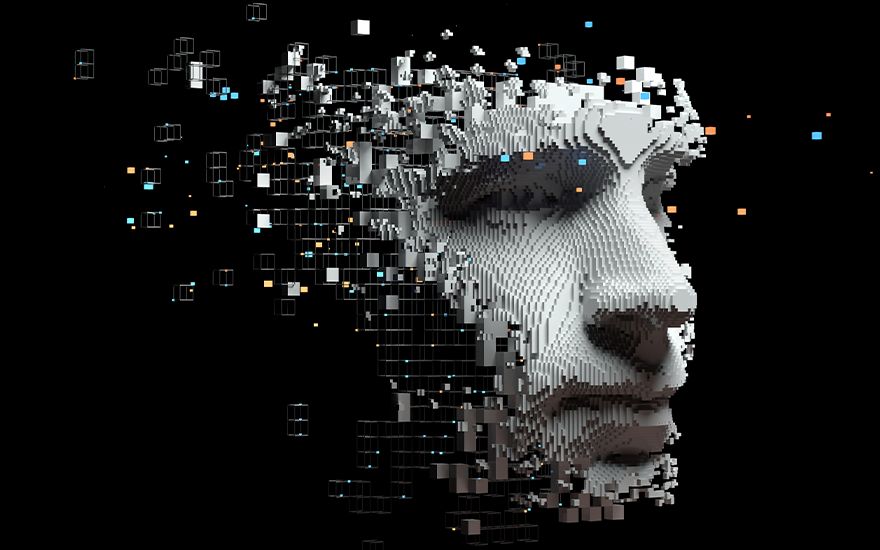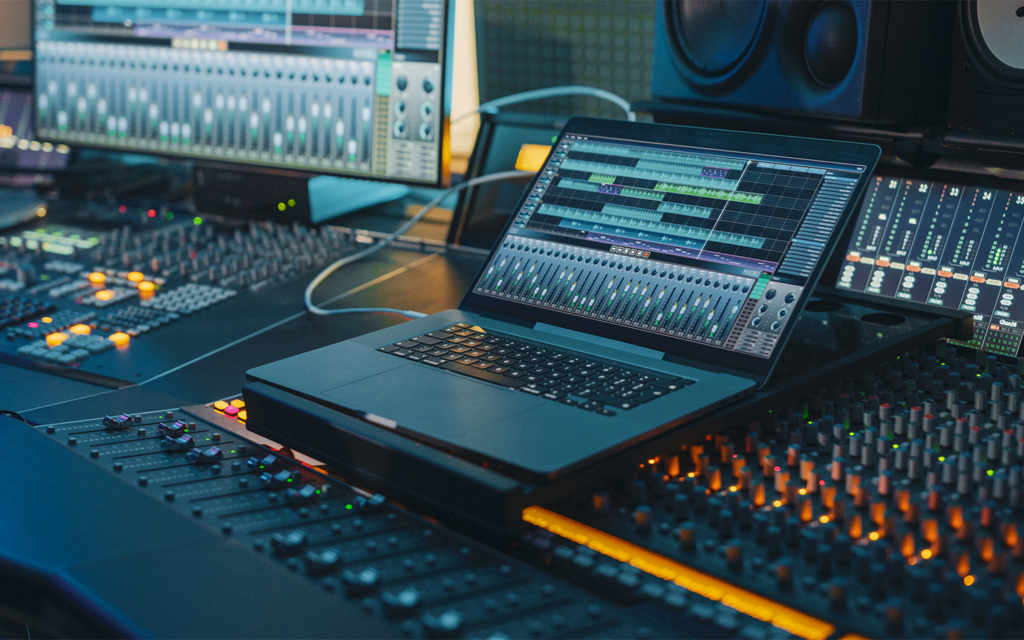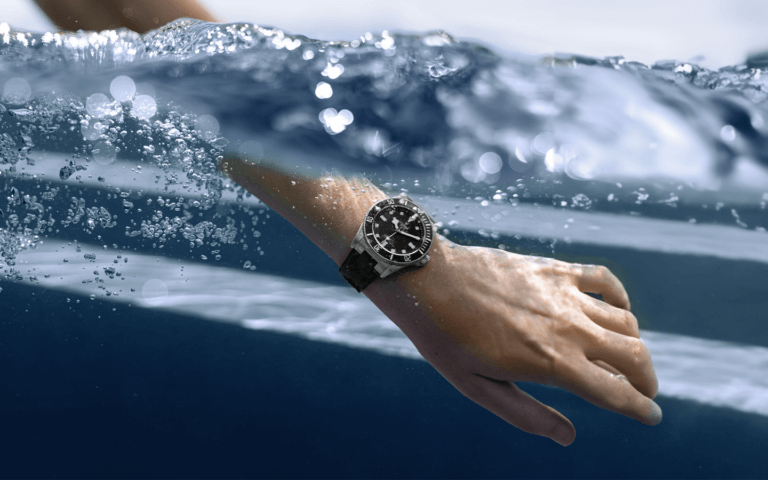Within seconds, you know it’s a Drake-type beat. A few seconds pass, and the man himself jumps into action, citing lyrics about exes and Justin Bieber, before The Weeknd adds even more flavor to a track that screams number one hit.
There’s only one small problem.
It’s not Drake. It’s not The Weeknd. It’s a new and potentially game-changing artist who goes by the name of artificial intelligence.
‘Heart On My Sleeve’ has garnered more than 20 million views and listens across TikTok, Twitter and Spotify since its release, with unknown producer “Ghostwriter” claiming the lyrics were written by him. Still, machine learning software was used to clone the artists’ voices.
The track’s anonymous creator wrote under its YouTube upload: “This is just the beginning.” before appearing on TikTok hidden beneath a white sheet, claiming: “I was a ghostwriter for years and got paid close to nothing for major labels to profit. The future is here.”
Unsurprisingly, this has caused an uproar within the music industry and comes shortly after the recent attempts by Universal Music Group, whose roster includes both Drake and The Weeknd, to persuade streaming platforms to clamp down on AI-generated music.
You might struggle if you haven’t heard the eerily impressive melody. It was initially removed from Apple, Deezer and Tidal before TikTok, Spotify and YouTube were subsequently asked to remove it.
A link to an original version of the song on YouTube now says: “This video is no longer available due to a copyright claim by Universal Music Group”.
Are we witnessing the birth of a historical moment in music, signaling a new wave or art form, or are we all just being played in the latest high-profile stunt?
How is AI-generated music made?
Following the mysterious release and subsequent explosion of the track, which saw it streamed 629,439 times on Spotify before it was pulled, the morality of AI-generated music and its implications on the industry was thrust into the spotlight.
Since its inception, music has been exclusively reserved for the human voice, but the advancements in AI have paved the way for a new form of production and experience.
To generate anything, AI needs to take in copious amounts of data, learn its patterns, and turn out various outputs until it gets a convincing enough model. In the case of music, a programmer can input a set of chords, melodies, and beats into an algorithm.

The algorithm will learn the unique properties of that music and then turn out something new based on the data it received.
High-profile AI-generated projects and songs are nothing new. To bring awareness to mental health within the music industry, Over the Bridge created the Lost Tapes of the 27 Club –creating new music from artists who have passed away at 27.
To execute the project, programmers input songs from Kurt Cobain, Amy Winehouse, Jimi Hendrix, and Jim Morrison into an algorithm and isolate the artist’s songs’ rhythms, hooks, and melodies.
AI creates new music by analyzing the specificities of each rhythm, hook, and melody. The AI used in the project wasn’t sophisticated enough to fully compose its own melody and lyrics, so humans on the project picked out the best elements of the AI’s output and compiled them together.
There exists a version of Adele’s Easy On Me purporting to be sung by Kanye West, while Rihanna’s voice has been cloned on a cover version of a song by Beyonce.
In 2018, artist Taryn Southern created the first album generated from AI titled I AM AI, no doubt using one of the several AI-powered music production platforms that currently exist – Aiva, Boomy and Soundful, just three of several.
AI can also create lyrics with predetermined emotionality, create previously unknown musical genres, and explore the boundaries of music.
Just one of the other benefits is that AI-supported songwriting, with sometimes very unusual suggestions from the “digital box”, can potentially alleviate writer’s blocks. Music based in part on self-learning algorithms is like setting out for a digital horizon whose secrets are currently still deeply hidden.
The Great Ghostwriter mystery
A Netflix-worthy soap opera is looming following the drop of ‘Heart On My Sleeve,’ with a growing list of possible explanations and conspiracy theories now surfacing.
One thing is for certain. Neither Drake nor The Weeknd has acknowledged the track’s existence. However, the pair have collaborated in real life, prompting speculation that Heart On My Sleeve could even be a publicity stunt.
Call it a case of poetic timing or sheer coincidence, but mere days before Ghostwriter’s post broke the internet, someone made an AI-generated Drake voice rapping an Ice Spice track, to which Drake posts on Instagram, “This is the final straw AI.”
Would it really come as a surprise if Drake, a style-hopping artist that has consistently maintained his profile by always being on top of the latest trends that are bubbling up, capitalized on the hottest trend of 2023, AI?
The easiest way for someone to make an “artificial intelligence” version of Drake is to be Drake. However, in a lengthy statement, James Murtagh-Hopkins, senior vice president of communications at Universal Music Group, provided a long-winded and confusing statement that has raised suspicion further.
UMC has been “embracing new technology and putting it to work for our artists”; however, “the training of generative AI using our artists’ music represents both a breach of our agreements and a violation of copyright law.

This “begs the question as to which side of history all stakeholders in the music ecosystem want to be on: the side of artists, fans and human creative expression, or on the side of deep fakes, fraud and denying artists their due compensation.”
Murtagh-Hopkins openly shares that UMC has been innovating with AI technology for some time but falls back on the label’s ethical and legal responsibilities to protect its artists from harm.
The plot continues to thicken, though, as UMC were able to send The Verge a link to an uploaded version of the song on YouTube when they questioned why the track had been removed from streaming services.
The video had just 41 views at the time, raising the question of how they knew the direction to point.
Of course, it’s highly plausible that a sensible and more realistic reality lies beneath the tech-covered surface of the web’s latest viral mystery. To understand that version of events, the aforementioned ‘@ghostwriter977’ holds the keys.
The industry wannabee wasted no time making their spectral presence known, posting four song-promoting TikToks in one day alone, with the first video racking up 9.4 million views.
Ghostwriter also has accounts on all the streaming services. Their profiles feature the same blurry photo of their glasses-donning ghostly head, usually accompanied by the declaration, “I’m just getting started.”
The Verge opens another hypothesis – albeit one clutching at paper-thin straws, debating whether “the ‘viral’ song and all of the attention paid to it is all created to hype up the link in Ghostwriter’s bio,” which is Laylo, a promotional service that’s supposed to notify an artist’s fans whenever they release new music and go on tour, among other things.
They go on to theorize that “if you’re a crypto-adjacent mass-texting startup trying to generate some new leads, then all of these other moves start to make more sense. If interest in NFTs is dipping, then just add AI and wait for some attention to find you.”
While providing an improbable scenario, stranger things have happened.
The future of AI and music
Currently, no law is in place to stop an actual human who is a soundalike from making a completely new track produced in another artist’s style.
The main problem is that millions of individual music splices are already being used to hone AI music modeling. And, unless it’s blindingly apparent or self-disclosed for marketing purposes – as in the case of the Ghostwriter track – how do you prove, as a creator, that your work has been used as source material for AI?
A grey area exists within the music industry; for example, new music trained on Taylor Swift’s Folklore would only infringe copyright if the music sounds too similar to its original work.
There are profound concerts among veterans in the industry. Nick Stewart, chief executive of TCAT, a tech company that deals with music piracy, states that
“AI is clearly one of the most serious threats to hit the music business in terms of piracy for a very long time. We are standing on the precipice of an AI evolution around music piracy. Protecting the rights of our clients is the core value at the heart of all our products.”
Michael Nash, UMG’s executive vice president and chief digital officer, wrote in Music Business Worldwide that the rise of AI could be a “calamity” for the industry.
He said that AI could dilute the market, “making original creations harder to find and violating artists’ legal rights to compensation from their work”, and that “these developments have led to profound concerns in our industry, with similarities being drawn between AI’s rise and the rise of Napster and unlicensed music-sharing over 20 years ago.
Rolling Stone magazine said AI was “shaping up to be the largest disruptor to the music industry since digital downloads” and “it poses one of the most important existential questions to music creation the art form itself has ever faced.”
A European Commission official said policing of digital recreations of famous recording artists was “complex and required constant monitoring”.
Indeed, several websites offer services that allow fans to create new songs using the voices of music’s biggest stars. One of those is Uberduck, which allows you to make any text sound like it’s been read by a famous figure; the voices on the system range from that of Spongebob to Kanye West.
‘Heart On My Sleeve’ feels like one of two things.
A historic, game-changing moment that may signify the start of music’s new art form, or one layered stunt which has played us all, showcasing the naive nature of today’s media-digestive society.
Pandora’s box has been opened, and it’s full of legal issues, morality questions, and, above all, more questions than answers.






